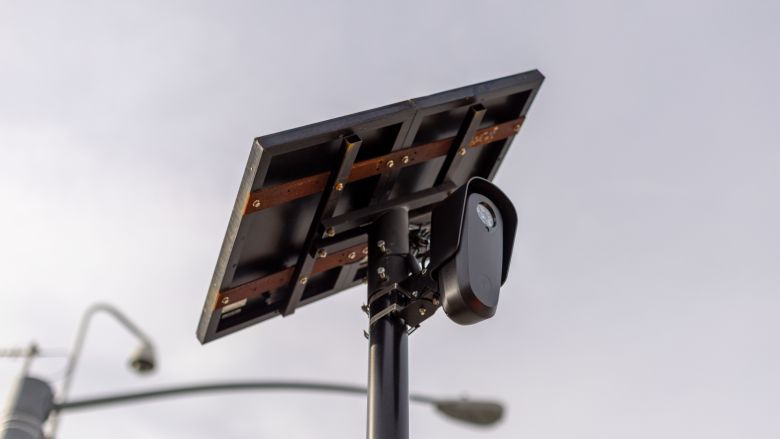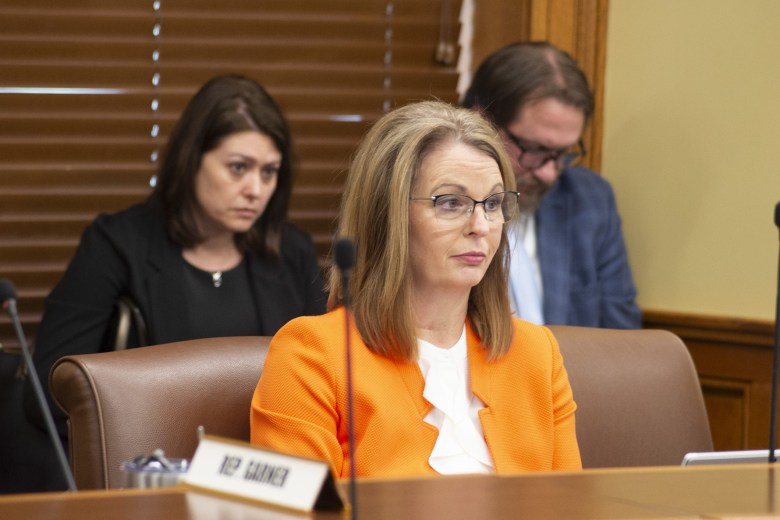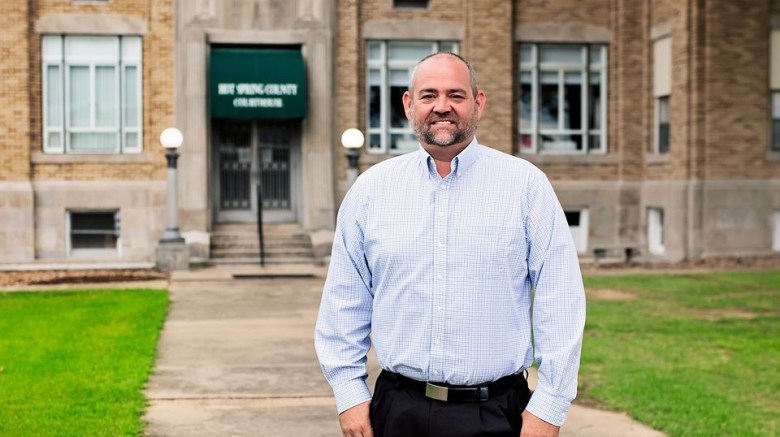Across from Charlie and Angie Wolf’s house, Greers Ferry police put in a license plate-reading camera in May. The camera was not moving, according to Greers Ferry Police Chief Kallen Lacy, when they complained.
Lacy reaffirmed that he had no intention of moving the camera as recently as July 8. On the same day, City Attorney Blake Spears stated that obtaining a court order would be the best course of action if the Wolfs wanted the camera moved.
However, in the face of even a modest amount of opposition, the bombast and bluster of small-town government offices tend to fade, and it appears Greers Ferry is no exception. The camera was taken down less than two weeks after a nationwide nonprofit law firm threatened to sue local officials if they didn’t take down the camera.
In September 2024, Greers Ferry signed a contract with Flock Group, Inc., a business that provides license plate-reading cameras that collect vehicle information and offer searchable data on the vehicles that are captured. In accordance with that agreement, Flock set up five cameras throughout the village, including the one across the street from the Wolfs’ residence.
On behalf of the Wolfs, Greers Ferry received a letter on July 17 from the Institute for Justice (IJ), a libertarian-leaning Virginia-based law firm that has opposed the use of plate-reading cameras in other jurisdictions. IJ told city officials in that letter that the camera violated the Wolfs’ Fourth Amendment rights against unlawful searches because it meant the Wolfs were constantly monitored, and reasonable people don’t expect to be spied on in that way while they go about their daily lives.
It seems that Greers Ferry was sufficiently intimidated into complying by the threat of legal action to cease violating the constitution. According to IJ, the camera across from the Wolfs’ house has been taken down by either Flock or city officials, and the Wolfs will no longer be the target of ongoing warrantless property surveillance.
Not all possible legal problems for the community are resolved by taking down just one camera.
According to IJ, there are still serious Fourth Amendment issues with the deployment of these license plate reader cameras, so we strongly advise the city not to extend its agreement with Flock Safety after the current one expires.
IJ points out that after realizing how invasive and vulnerable these cameras are to misuse, Austin and Denver have canceled their agreements with Flock in recent years. As they previously stated, the Supreme Courts of South Dakota and Colorado have recently ruled against the use of cameras in a state of perpetual surveillance, and a federal court in Virginia recently rejected the city of Norfolk’s move to have a lawsuit filed by IJ regarding the use of Flock cameras in that city dismissed.
In recent months, Flock has come under growing public criticism for enabling local police departments to share camera data with federal Immigration & Customs Enforcement officers.Flock data reveals over 4,000 nationwide and statewide lookups by local and state police, either at the request of the federal government, as an unofficial favor to federal law enforcement, or with a possible immigration purpose, according to a recent article from 404 Media.
According to the article, even though Flock and ICE do not have a contract, the agency obtains data from Flock’s cameras by requesting information from local law police.
Cities like Oakland and San Francisco continue to share this type of information with federal authorities despite at least one state, California, expressly forbidding police from doing so.
Earlier this year, the Arkansas Legislature passed a new law that broadens the scope of who can utilize plate-reading cameras and the purposes for which the data they collect can be used.Act 668 permits private landowners and commercial enterprises to install plate-reading cameras on their property. It was supported by Representative Jimmy Gazaway (R-Paragould) and Senator Ben Gilmore (R-Crossett). Previously, this technology could only be used by government-affiliated organizations.
Act 668 also lifted the ban on using or disclosing data collected by plate-reading cameras for any other reason, allowing private citizens, businesses, and state and local authorities in Arkansas to freely share this information with ICE and other federal agencies. Private landowners and enterprises are nonetheless required by law to erase their data after 60 days, while all other entities must do so after 150 days.
It’s dragon-slaying time!
The Arkansas Times, which relentlessly defends the fundamental rights and liberties in our community, stands as a light of truth in an era when critical voices are being silenced more and more. Our commitment to provide uncompromising journalism has never been more important, especially with Arkansas in the center of a broad culture war that is impacting our libraries, schools, and public conversation. We can’t accomplish our goals of defeating dragons and holding those in positions of authority responsible alone. You can guarantee that independent journalism in Arkansas not only endures but flourishes by making a contribution today. We can join the fight and make a difference together.








